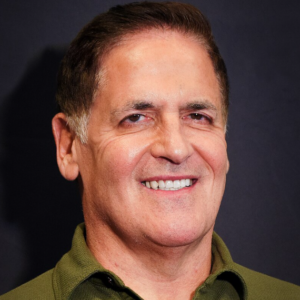Mark Cuban
 The American Dream is an enduring belief that through hard work and determination, anyone can achieve success and upward mobility. It has been a driving force in the nation’s cultural fabric for generations, but as economic inequality widens and social mobility stagnates, many have begun to question whether this long-held ideal still rings true, especially for those from humble beginnings.
The American Dream is an enduring belief that through hard work and determination, anyone can achieve success and upward mobility. It has been a driving force in the nation’s cultural fabric for generations, but as economic inequality widens and social mobility stagnates, many have begun to question whether this long-held ideal still rings true, especially for those from humble beginnings.
However, the remarkable rise of Mark Cuban serves as a powerful contemporary example that the American Dream is very much alive and well for those willing to seize opportunities with tenacity and perseverance. Cuban began his journey in working-class Pittsburgh family. His transformation into one of the nation’s most influential business moguls is a testament to the potential that still exists in the land of opportunity.
From Pittsburgh to Primetime
Mark Cuban grew up in the working-class community of Mt. Lebanon, a humble Pittsburgh suburb. Even from a young age, Cuban displayed an innate entrepreneurial spirit and go-getter mentality that foreshadowed his future business expertise.
At just 12 years old, the precocious Cuban started peddling goods door-to-door, scraping together enough money to purchase a coveted pair of basketball shoes. This earliest of ventures proved merely a preview of the drive that would propel him to the pinnacle of corporate America.
After graduating from Indiana University, Cuban discovered a penchant for identifying emerging technological trends and swiftly capitalizing on them. The budding serial entrepreneur launched a handful of successful startups, ultimately leading to his game-changing internet radio company—Broadcast.com. The company went public in 1998, and Cuban’s perseverance and risk-taking paid off in spectacular fashion when he sold it to Yahoo just a year later for a staggering $5.7 billion.
The Dream Never Sleeps
At that point, most would have been content to retire from the corporate world in luxury. Not Mark Cuban. Fueled by an unwavering belief in the American Dream’s “land of opportunity” ethos, the business mogul immediately sought out his next venture, pouring his resources, work ethic, and visionary instincts into an endeavor well outside his comfort zone.
In 2000, Cuban boldly purchased the long-struggling Dallas Mavericks franchise for $285 million, a move that drew plenty of skepticism at the time. Undeterred by the naysayers, Cuban’s confidence and determination ultimately transformed the Mavericks from a languishing organization into an NBA powerhouse that captured the 2011 championship.
These days, Cuban’s entrepreneurial spirit and zeal for the American Dream are on full display as an investor on ABC’s hit show Shark Tank. The program offers a platform for aspiring founders to pitch their business ideas to deep-pocketed investors like him. As Cuban proudly stated, “[Shark Tank] has become a reinforcement of the American Dream.”
Rewriting the Narrative
So why are all these naysayers so quick to insist that achieving self-made success is some pipe dream? Could it be that some simply lack the grit and entrepreneurial vision necessary to turn aspirations into reality in the modern era?
Achieving the American Dream isn’t easy—it never has been. Through a lot of stamina and sacrifice, Mark Cuban personifies the vast potential and upward mobility that still exists in this nation’s free market system for those willing to dream boldly and put in the blood, sweat, and tears. Mark Cuban’s rise from working-class Pittsburgh native to billionaire entrepreneur and nationally recognized business icon serves as a powerful rebuttal to the skeptics who claim the American Dream is dead and gone.
